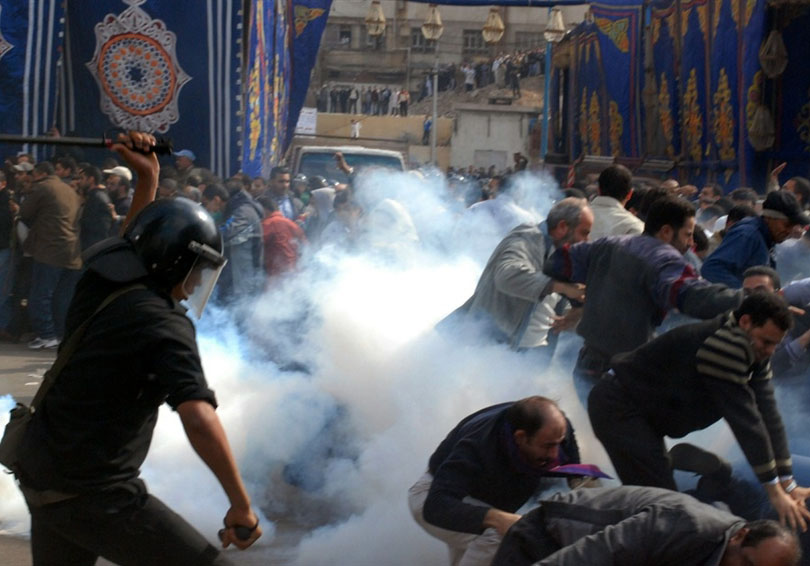
Aug 14, 2015 | News
Today, on the second anniversary of the killing by the armed and security forces of more than 1,000 individuals during the dispersal of the Rabaa’ Al-Adawyia and Al Nahda Square sit-ins, the ICJ calls on the Egyptian authorities to end its policy of impunity for serious human rights violations.
The authorities must conduct thorough, effective, independent and impartial investigations into protestor deaths with a view to holding to account all those responsible for unlawful killings and other human rights violations committed in the course of the demonstrations, the ICJ says.
“It is a measure of the total disregard for victims’ rights and the absolute impunity of the armed and security services that in the two years that have passed, no effective investigations in line with international standards have taken place and not a single person has been brought to justice for the mass killings of protestors,” said Said Benarbia, Director of the ICJ’s Middle East and North Africa Programme.
“The victims of human rights violations and their family members have been left without any effective remedies or reparation, including an acknowledgment by the Egyptian authorities of their responsibility for the hundreds of killings and injuries that day,” he added.
Although fact-finding initiatives were conducted by Egypt’s quasi-governmental National Human Rights Council and by a government-appointed commission, the ICJ considers these investigations to be deeply flawed and ineffective.
The ICJ says both had inadequate access to first hand or physical evidence from the scene, because they did not begin their work until weeks or months after the events took place; lacked the ability to compel State authorities to testify and provide evidence; failed to document the full extent of human rights violations that took place; and neither led to any form of criminal investigation, much less prosecution of those responsible for these violations.
Further, while the government-appointed commission found that over 700 people had been killed during the Rabaa’ and Nahda dispersals, the shambolic report it issued dedicated just 9 pages to these two dispersals, concluding summarily and without substantiation that the police had been justified in violently dispersing the protest and blaming primarily the organizers of the sit-ins as well as the protestors for the high death toll.
There are credible allegations that in dispersing these demonstrations the armed and security forces unlawfully resorted to excessive and disproportionate use of force, the ICJ adds.
“By turning a blind eye to gross human rights violations committed by the armed and security forces, and by shielding their members from any form of criminal accountability, the Egyptian authorities are fostering the structural impunity that prevails in Egypt instead of combatting it,” said Benarbia.
“To meet their obligations under international law, the authorities must dismantle such policies and practices and establish the truth about the sit-ins’ dispersal,” he added.
Under international law lethal force may never be used unless strictly necessary to protect life.
States are obliged to provide access to an effective remedy and reparation to victims of human right violations.
They are also required to conduct prompt, thorough and impartial investigations, with a view to holding criminally accountable persons responsible for serious human rights violations, particularly those involving a denial of the right to life.
Contact:
Alice Goodenough, Legal Adviser of the ICJ Middle East and North Africa Programme, t: +44 7815 570 834; e: alice.goodenough(a)icj.org
Nader Diab, Associate Legal Adviser of the ICJ Middle East and North Africa Programme, t: +41 229 793 804; e: nader.diab(a)icj.org
Egypt-Impunity Rabaa Sq-News-Press releases-2015-ARA (full text in pdf, ARABIC)
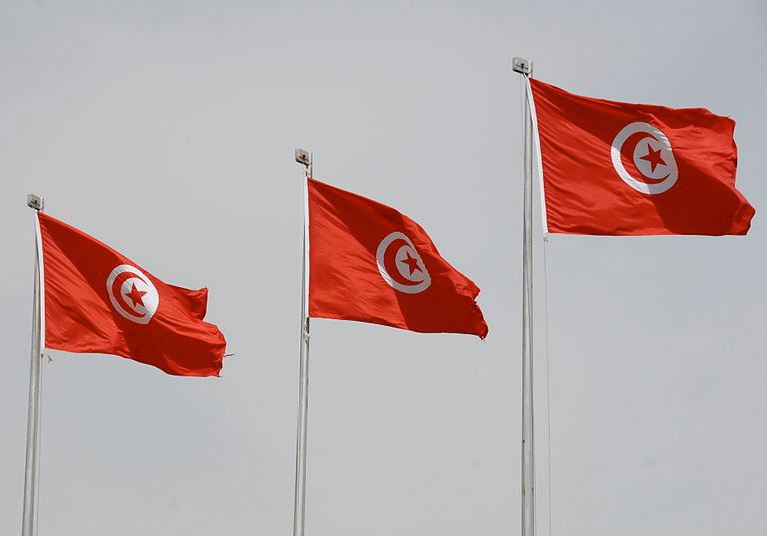
Aug 6, 2015
In a position paper published today, the ICJ called on the Tunisian President to refrain from promulgating the flawed Counter-Terrorism Law that was adopted by the Assembly of the People’s Representatives on 25 July 2015.
The ICJ also urged the Tunisian authorities to amend this Law through a transparent and inclusive process, including with a view to ensuring its full compliance with international human rights and rule of law standards.
The adoption of the Law follows a series of attacks against members of the security forces and the army and two deadly attacks in the Bardo Museum and Sousse.
“Legitimate security concerns by Tunisian authorities should not lead to the adoption and the enforcement of repressive laws and other measures that erode the rule of law and curtail fundamental rights and freedoms,” said Said Benarbia, Director of the Middle East and North Africa Programme at the ICJ.
Overly broad and imprecise definitions in many offences created under the Law extend its reach far beyond truly terrorist acts such as hostage-taking, killings or causing serious injuries, and other such violence.
In some aspects, such as offences of glorification and incitement to terrorism, the provisions are so broadly drafted that they have the potential to criminalize the peaceful exercise of fundamental freedoms, including the right to freedom of expression. Some provisions could result in the wrongful prosecution of journalists and whistleblowers.
The ICJ is also deeply concerned at article 68 of the Law, which provides immunity from criminal prosecution for security forces when using force in the course of their duties.
The article could potentially allow law enforcement officers who use force in violation of international standards and the right to life, such as intentional use of lethal force when it is not strictly unavoidable in order to protect life, to escape justice.
Other provisions of the Law raise serious concerns for the right to a fair trial, the right to liberty, and the right to privacy.
In particular, provisions allowing a person to be held in police custody for up to 15 days without access to a lawyer or a judge are inconsistent with the right to liberty, fair trial guarantees, and guarantees for the prevention of torture and other abuses in detention.
“By shielding security forces from accountability and eroding procedural and other fair trial guarantees of terrorism suspects, the Law contradicts Tunisia’s obligations under international law, and its own Constitution,” added Benarbia. “ Tunisian authorities must ensure the Law is revised to fully respect its human rights obligations, including those relating to the right to liberty, to a fair trial, and to effective remedies and reparation in cases of human rights violations.”
Contact
Theo Boutruche, Legal Adviser of the ICJ Middle East and North Africa Programme; t: +96 170 888 961; e: theo.boutruche(a)icj.org
Tunisia-CT position paper-Advocacy-Position Paper-2015-ENG (full text of the position paper in English)
Tunisia-PR CT position paper-News-Press release-2015-ARA (full text of the press release in Arabic)
Tunisia-CT position paper-Advocacy-Position paper-2015-ARA- (full text of the position paper in Arabic)
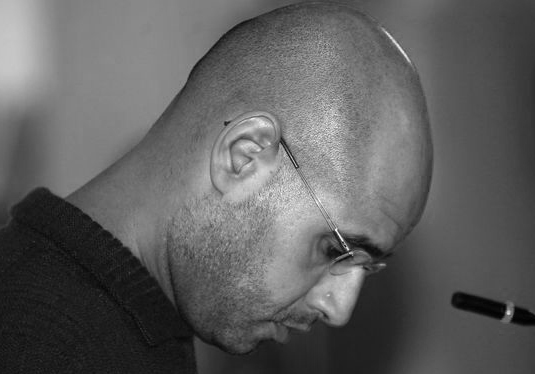
Jul 28, 2015 | News
The ICJ today expressed its serious concerns about the trial, conviction and sentencing to death of Saif al Islam Gadhafi, Abdallah al Senussi, as well as seven officials of the Gadhafi regime by the Tripoli Criminal Court.
The ICJ is deeply concerned that the trial of the officials of the Gadhafi regime failed to scrupulously respect the guarantees of fair trial as required by Article 14 of the International Covenant on Civil and Political Rights, to which Libya is a state party.
The imposition of the death penalty following such an unfair trial violates the right to life.
The ICJ opposes the death penalty in all circumstances as a violation of the right to life and the right not to be subjected to cruel, inhuman or degrading punishment.
“Libyan authorities must comply with their obligations under international law, refrain from implementing the death sentences against Saif al Islam and 8 former Libyan officials, and ensure that all defendants are retried before an independent and impartial tribunal and in full compliance with international fair trial standards,” said Said Benarbia, Director of the MENA programme at the ICJ.
“The trial is a lost opportunity to make a break from decades of unfair trials in Libya. It is also a missed opportunity to establish the truth about the legacy of alleged gross human rights violations committed during the 40-year reign of Moammar Gadhafi, including summary executions, enforced disappearances, torture and other ill-treatment, and arbitrary detention,” Benarbia added.
Fair trial violations included severe limitations on the defendants’ rights to access a lawyer, to adequate time and facilities to prepare a defence, and to be represented and communicate with a lawyer of their own choosing, the ICJ says.
23 other defendants were sentenced to prison terms ranging from life imprisonment to 5 years.
The charges against the officials included: “murdering and bombarding civilians during the 2011 revolution,” “inciting, participating and assisting in the murder of Libyans,” “recruiting mercenaries and establishing brigades and then providing them with weapons, uniforms and money to fight the protesters.”
Some defendants, including Saif al Islam Gadhafi, who continues to be held in militia custody in Zintan, were not present during the trial, though were connected by video link at times.
The ICJ is also concerned that the defendants’ rights to appeal are limited in numerous ways.
Convictions by the Tripoli Criminal Court will be reviewed before the cassation chamber of the Supreme Court.
The chamber only examines the proper application of the law by the lower courts and does not review the merits of the case.
In accordance with Libya’s obligations under international law, including the ICCPR, the defendants have the right to have their convictions and sentences reviewed by an independent higher tribunal.
Such review must concern both the legal and material aspects of the defendants’ convictions and sentences.
The ICJ is concerned that political and security instability in Libya continues to undermine the ability of the judiciary to function and administer justice independently and impartially.
In reviewing the situation in the context of the Saif al Islam Gadhafi case, the International Criminal Court (ICC), expressed concern about the inability of the judicial and governmental authorities to obtain testimony or to provide witness protection.
It found that Libya was unable to conduct a fair prosecution and trial of Gadhafi.
The ICC issued a warrant for his arrest to answer allegation of crimes against humanity.
The ICJ calls on the Libyan authorities to annul the unfair proceedings; to fully cooperate with, and surrender Saif al Islam Gadhafi to the ICC; and to ensure the fair re-trial of the other accused.
Contact:
Doireann Ansbro, Associate Legal Adviser, ICJ Middle East and North Africa Programme, t: +216 71 841 701, e: doireann.ansbro(a)icj.org
Libya-Saif Gadhafi sentence-News-Press releases-2015-ARA (full text of press releases in Arabic, PDF)
Photo: Ahmed Jadallah / Reuters
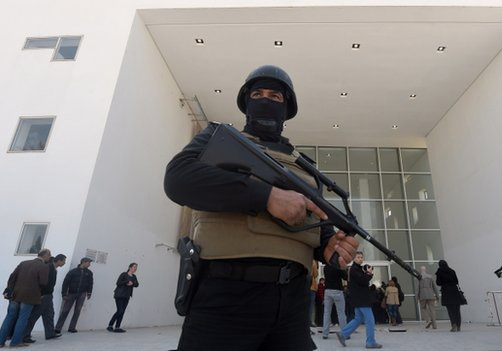
Jul 23, 2015 | News
The ICJ today called on the Tunisian authorities to amend the deeply flawed draft Counter-Terrorism and Money Laundering law with a view to ensuring its full compliance with international standards.
“Tunisian authorities have obligations under international law to protect individuals under their jurisdiction against all acts of terrorism,” said Said Benarbia, Director of the Middle East and North Africa Programme at the ICJ.
“At the same time, all counter-terrorism measures must fully respect human rights guarantees and the rule of law,” he added.
The draft Counter-Terrorism and Money Laundering law, revised since it was first introduced last year, was revived following a series of attacks against members of the security forces and the army and the deadly Bardo Museum (photo) attack on 18 March 2015.
In response to the killing of 38 tourists in Sousse on 26 June and the following declaration of a state of emergency on 4 July 2015 by the Tunisian President, the Tunisian Assembly of the People’s Representatives has accelerated the process of discussing and adopting the Draft Law.
The Draft Law criminalizes a wide range of acts through overbroad and imprecise definitions of terrorism and terrorism-related acts.
Such definitions could potentially have the effect of criminalizing activities not actually related to terrorism, or even the lawful and peaceful exercise of fundamental rights and freedoms, including the right to freedom of expression, the ICJ says.
The ICJ is particularly concerned that the draft law grants, in its article 68, immunity from criminal prosecution for security forces, outside cases of self-defence, when using force in the course of their duties.
This provision requires amendment to ensure that it does not immunize use of force that violates the right to life in violation of international law and standards, including for instance intentional use of lethal force when it is not strictly unavoidable in order to protect life, the Geneva-based organization adds.
“The draft law should not dilute the specificity of terrorist acts by drawing ordinary crimes within the scope of the counterterrorism legislation, nor should it be used as a tool to shield members of security forces from accountability in cases of human rights violations committed in the course of their functions,” Benarbia said.
Furthermore, the bill contains provisions that could potentially result in undue prosecution of whistleblowers and journalists, or otherwise disproportionally limit the freedoms of expression and information in violation of international law, the ICJ notes.
A number of offences under the Draft Law are punishable with the death penalty.
The ICJ opposes the death penalty in all circumstances as a violation of the right to life and the prohibition of torture and other cruel, inhuman or degrading punishment.
The Draft Law also creates an exceptional regime for police custody, allowing the prosecutor to order up to a period of 15 days of detention (articles 37 and 39) without access to a lawyer or a judge, in violation of the right to liberty, fair trial guarantees, and guarantees for the prevention of torture and other abuses in detention.
It further provides for extensive infringements of the right to privacy through various forms of surveillance, and potentially breaches lawyers’ duties of confidentiality in ways that have not been justified.
“In reviewing and approving the Draft Law, members of the Assembly must ensure that it is fully in line with Tunisia’s obligations under international law, including those relating to the right to life, to liberty and to a fair trial,” Benarbia added.
Contact
Theo Boutruche, Legal Adviser of the ICJ Middle East and North Africa Programme, t: +96 170 888 961 ; e: theo.boutruche@icj.org
Tunisia-Counter Terrorism Draft Law-2015-ARA (Full text in Arabic, PDF)
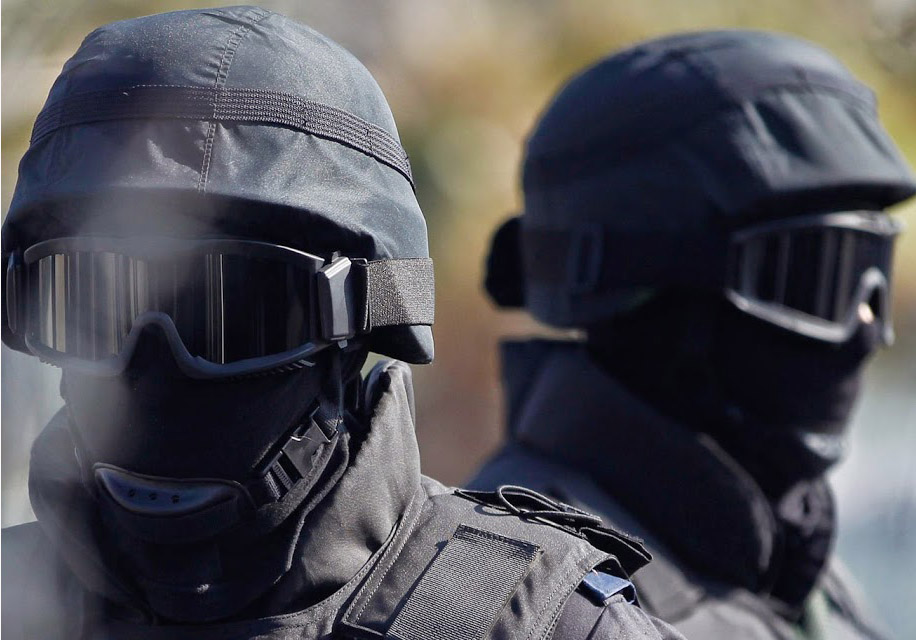
Jul 9, 2015
In a new position paper, the ICJ calls on the Egyptian authorities to refrain from promulgating the deeply flawed draft Counter-Terrorism Law.
The draft law, which was approved by the Cabinet on 1 July and the State Council the next day, was introduced following the assassination of the Prosecutor-General, Hisham Barakat, on 29 June, and attacks by armed groups in the Sinai two days later that left dozens of soldiers dead.
“Egypt’s draft Counter-Terrorism Law would erode the rule of law and brush aside fundamental legal and human rights guarantees,” said Said Benarbia, Director of the Middle East and North African Programme at the ICJ.
“It contravenes the unanimous declaration of all states at the UN, that human rights should be the cornerstone of counter-terrorism efforts,” he added.
The draft law criminalizes an enormous range of acts using broad definitions and vague wording. Such definitions have the potential to criminalize the legitimate and peaceful exercise of rights, including the rights to freedom of expression, association and assembly, the ICJ says.
A number of these crimes are punishable with the death penalty. The ICJ opposes the death penalty in all circumstances as a violation of the right to life and the prohibition of torture and other cruel, inhuman or degrading punishment.
Furthermore, the draft grants wide powers to investigative and law enforcement officials that present severe risks of arbitrary detention and extensive infringements of the right to privacy without adequate safeguards or judicial oversight, the ICJ adds.
The draft law also grants immunity from criminal prosecution for State officials, including potentially those who unlawfully use lethal force.
A new terrorism court with expedited procedures, which fall short of international fair trial standards, is also provided for under the draft law.
The draft also grants the President sweeping discretionary powers, including the power to take any “necessary measures” when there is a “danger of a terrorist crime.”
“Egyptian authorities must drop the draft Counter-Terrorism Law and ensure that any future counter-terrorism measures are fully in line with Egypt’s obligations under international law, including the obligation to uphold the rule of law and human rights,” Benarbia said.
Contact:
Alice Goodenough, Legal Adviser of the ICJ Middle East and North Africa Programme, t: +44 7815 570 834; e: alice.goodenough(a)icj.org
Nader Diab, Associate Legal Adviser of the ICJ Middle East and North Africa Programme, t: +41 229 793 804; e: nader.diab(a)icj.org
Egypt-Counter-Terrorism Law-Advocacy-Position papers-2015-ENG (full text of position paper in PDF, English)
Egypt-Counter-Terrorism Law-News-Press releases-2015-ARA (full text of Press release in PDF, Arabic)
Latest update (17 August):
Since publication of the ICJ’s Position Paper, certain aspects of the law have been amended, in particular by replacing the proposed “terrorism courts” with the entrenchment of terrorism circuits established within the court system. However, the main points of the criticism in the Position Paper remain valid for the version of the law promulgated on 17 August 2015.









